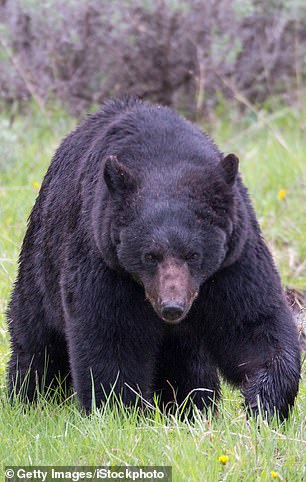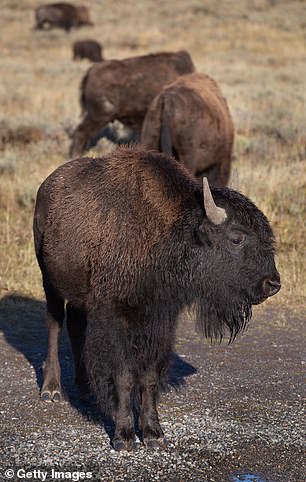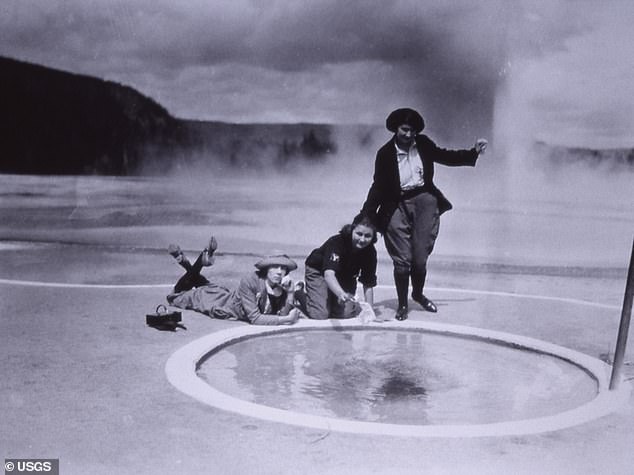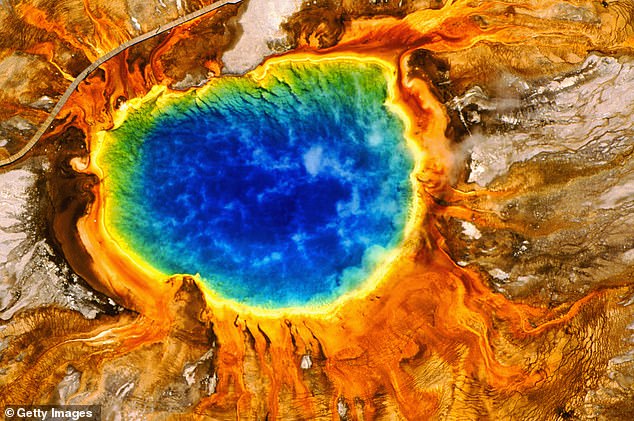Yellowstone’s biggest killer revealed – and it’s twice as deadly as bear and bison attacks combined
The most dangerous threat to visitors to Yellowstone Park has been revealed – and it’s not bears or bison.
Since the National Park was established in 1872, two people have been killed by bison and eight by bears, according to researchers. USGS.
But hot springs have proven far deadlier, with a total of 22 people killed since 1890.
According to National Park Services, hot springs have caused more deaths and injuries than any other natural phenomenon in the park, including wildlife.
Just this month, a New Hampshire woman suffered second- and third-degree burns after hiking off the trail and falling through the thin geothermal crust at Old Faithful Geyser.
The 60-year-old was hospitalized after coming into contact with “scalding water” beneath the surface, park officials said.
Yellowstone’s hot springs have proven far more dangerous to humans than to animals, with a total of 22 deaths

According to National Park Services, hot springs have caused more deaths and injuries than any other natural phenomenon in the park, including wildlife
The unidentified woman allegedly ignored signs warning of the prohibited thermal area near Mallard Lake Trailhead while hiking with her husband and dog.
The incident is the first known thermal injury at the park this year.
There are more than 10,000 hydrothermal features in Yellowstone National Park, including hot springs, geysers and mud pools.
Many hot springs in the park are hotter than 66°C (150°F), and some are hotter than 85°C (185°F).
Even brief exposure to these high temperatures can cause serious burns. When a large part of the body is burned, the chances of survival are low.
The first recorded case of burning in the park was in 1870.
Explorer Truman Everts, separated from his companions, survived 37 days in the wilderness before being rescued.
To stay warm, he slept near a hot spring and was burned by a blast of steam.
According to USGSEverts’ injury is typical of a hot springs incident, as the damage resulted from the temperature.
Although some hot springs are slightly acidic, it is usually not concentrated enough to dissolve body parts.

A tourist suffered second and third degree burns after hiking off the hiking trail in Yellowstone Park


Since the National Park was established in 1872, two people have been killed by bison and eight by bears, USGS reports

Pictured: In 2009, a hydrothermal event is seen in Biscuit Basin in Yellowstone National Park. Yellowstone officials say a similar explosion on Tuesday, July 23, 2024, sent tourists running for cover and destroying a boardwalk.
This time last year, a Michigan man was criminally charged with off-trail travel after suffering burns from thermal pools in Yellowstone.
In August 2022, Il Hun Ro, 70, from Los Angeles was murdered and almost completely decomposed after falling into one.
Only his foot was found and DNA testing was needed to identify his remains.
In 2021, two people were injured by the hot springs, one of them a 20-year-old woman who was severely burned after entering Maiden’s Grave Spring to rescue her dog, which died from its injuries.
That same year, the federal court system in Yellowstone sentenced a Connecticut man to a week in jail and made him pay a $1,000 fine to the conservation group that oversaw the park for trespassing on a thermal feature.
In 2000, 20-year-old Sara Hulphers fell into the boiling waters of Cavern Spring while hiking in the Lower Geyser Basin and died of third-degree burns.
That same year, the court banned a Pennsylvania woman from the park for two years, along with two years’ probation and nearly $500 in fines, after she trespassed on the sparsely landscaped thermal grounds that year.
Yellowstone National Park has experienced a tourism boom in recent years following the success of the hit TV series starring Kevin Costner.

Pictured: Early visitors at Handkerchief Pool, Black Sand Basin, circa 1923
According to a report last year, the cowboy drama brought in an estimated 2.1 million visitors and $730 million in tourism dollars. It also contributed to a boom in the state, causing housing prices to soar.
But with an increase in tourism also comes an increase in the number of accidents.
Webcams around the park have captured multiple instances of unwitting tourists putting themselves in danger for various reasons – ranging from a desire to get closer to nature or climbing over barriers to take a better selfie.
An Instagram account with the title ‘Tourons of Yellowstone‘ collects all the cases in which a ‘touron’, the combination of a ‘tourist’ and a ‘mouron’, performs yet another incredibly stupid charade, defiling the rules of the park again and again.
If anything, the account serves as an example of “what not to do,” as the park’s rules and regulations are linked in the bio for its nearly 550,000 followers.

Yellowstone is home to about half of the world’s geysers, many of which, experts say, are so astringent that a dip in one geyser would be akin to a dip in battery acid
The account is open for submissions to encourage visitors to hold each other accountable.
The largest influx of tourists visits Yellowstone during the peak of spring or fall, but the tourons started falling behind early this year.
“We’re already seeing new levels of stupidity this year,” Jen Mignard, owner of the Facebook page Yellowstone National Park: Invasion of the Idiots, told me. Cowboy stands daily in April. “I suspect that with even more tourism we will see a lot more really negative actions coming out of the park.”
Several videos show “tourons” straying from the designated boardwalk, created so tourists can observe the hot springs from a safe distance, to get dangerously closer to the geysers.
